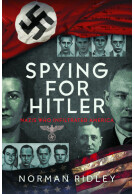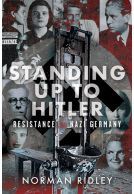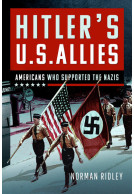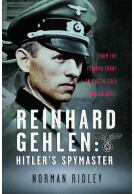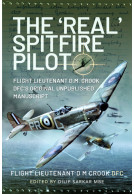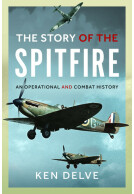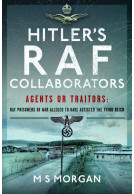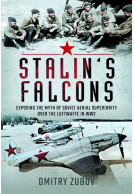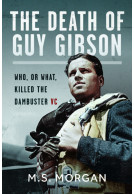The Role of Intelligence in the Battle of Britain (Hardback)
Imprint: Air World
Pages: 288
Illustrations: 16 black and white illustrations
ISBN: 9781399010382
Published: 15th November 2021
Survival at Sea in the Battle of Britain
(click here for international delivery rates)
Need a currency converter? Check XE.com for live rates
| Other formats available - Buy the Hardback and get the eBook for £1.99! | Price |
|---|---|
| The Role of Intelligence in the… eBook (13.0 MB) Add to Basket | £6.99 |
The Battle of Britain was fought between two airborne military elites and was a classic example of pure attack against pure defence. Though it was essentially a ‘war of attrition’, it was an engagement in which the gathering, assessment and reaction to intelligence played a significant role on both sides.
In some respects, both the RAF and the Luftwaffe were hamstrung in their endeavours during the Battle of Britain by poor intelligence. The most egregious Luftwaffe blunder was its failure to appreciate the true nature of Fighter Command’s operational systems and consequently it made fundamental strategic errors when evaluating its plans to degrade them. This was compounded by the Luftwaffe’s Intelligence chief, Major Josef ‘Beppo’ Schmid, whose consistent underestimation of Fighter Command’s capabilities had a huge negative impact upon Reichsmarschall Göring’s decision-making at all stages of the conflict.
Both the Luftwaffe and the RAF lacked detailed information about each other’s war production capacity. While the Luftwaffe did have the benefit of pre-war aerial surveillance data it had been unable to update it significantly since the declaration of war in September 1939. Fighter Command did have an distinct advantage through its radar surveillance systems, but this was, in the early stages of the conflict at least, less than totally reliable and it was often difficult to interpret the data coming through due to the inexperience of many of its operators. Another promising source of intelligence was the interception of Luftwaffe communications.
It is clear that the Luftwaffe was unable to use intelligence as a ‘force multiplier’, by concentrating resources effectively, and actually fell into a negative spiral where poor intelligence acted as a ‘force diluter’, thus wasting resources in strategically questionable areas. The British, despite being essentially unable to predict enemy intentions, did have the means, however imperfect, to respond quickly and effectively to each new strategic initiative rolled out by the Luftwaffe.
The result of three years intensive research, in this book the author analyses the way in which both the British and German Intelligence services played a part in the Battle of Britain, thereby attempting to throw light on an aspect of the battle that has been hitherto underexposed to scrutiny.
Featured on here
WW2 Today
Intelligence was paramount during the Battle of Britain. Only through secure intelligence could it be certain that each side could look to stay ahead of the other, and to get a feel as to what the enemy’s movements may be. Gathering, assessing and reacting to intelligence was important. The is a comprehensive book which details the overarching importance of intelligence during the Battle of Britain; elements of the whole RAF operation that went far beyond the role of Fighter Command.
Jon Sandison
Ridley lays that out clearly and methodically, which makes for a fascinating and informative book that readers of World War II and intelligence, in particular, will thoroughly enjoy.
Beating Tsundoku
Read the Full Review Here
As featured in
Scramble 1940 - Official Newsletter of the Battle of Britain Historical Society, Autumn/Winter 2023, Issue 168
As Featured In
Air & Space Power History, Autumn 2022
"Indeed,
International Journal of Intelligence and Counterintelligence, May 2022
this is a well-produced volume in
hardback using good quality materials,
ensuring that the black and white
illustrations reproduce faithfully."
This was I thought a very detailed and comprehensive book, full of quite a bit of detail and research which very clearly shows through. A book I would happily recommend to others who are fans of WW2.
UK Historian
Read the full review here
"Norman Ridley shines a very bright light on this lesser known aspect of the Battle of Britain. A must for the air warfare enthusiast."
Martin Willoughby, The Wessex Branch of the Western Front Association
"Read the book with interest."
Australian Naval Institute
Featured on
Battle of Britain Memorial Trust website
A new book by local author Nigel Ridley on the Battle of Britain examines this key aspect of the RAF’s fight to repel the Luftwaffe in 1940.
Jersey Evening Post
Rating: 5 out of 5 stars
NetGalley, Venkataraman Ganesan
Norman Ridley in his highly readable book “The Role of Intelligence in the Battle of Britain” recounts how an inflection point was reached in the Battle of Britain on account of improvements made in the fields of Radar and Encryption as a result of judicious use of intelligence. The utilitarianism of intelligence is explained in a very straightforward and simple manner by Professor F.H. Hinsley in his book ‘British Intelligence in The Second World War’. Hinsley describes intelligence as ‘an activity which consists, essentially of three functions. Information has to be acquired; it has to be analysed and interpreted; and it has to be put in the hands of those who can use it’. While Britain and her allies accomplished all these, their German adversaries miserably failed on multiple counts.
Read the full review here
Featured in
Jersey Evening Post, September 2021
The description covers a great deal of what is stated in the book, but there is so much more. There is so much more detailed analysis and planning into the intelligence gathering service that the book explains in great depth.
NetGalley, John Derek
The author has managed to combine a whole host of amazing facts, figures and relevant articles to produce the fascinating work.
There are detailed charts and tables of how things developed and were used as well as photographs throughout the publication. There is a list of sources, notes and a full index at the back of the book.
I thoroughly enjoyed reading this and it deserves a place on any historical reference shelf.
About Norman Ridley
NORMAN RIDLEY is an Open University Honours Graduate who writes about the less well covered aspects of 20th Century history. He lives in the Channel Islands.








